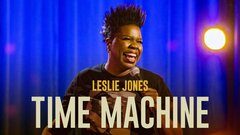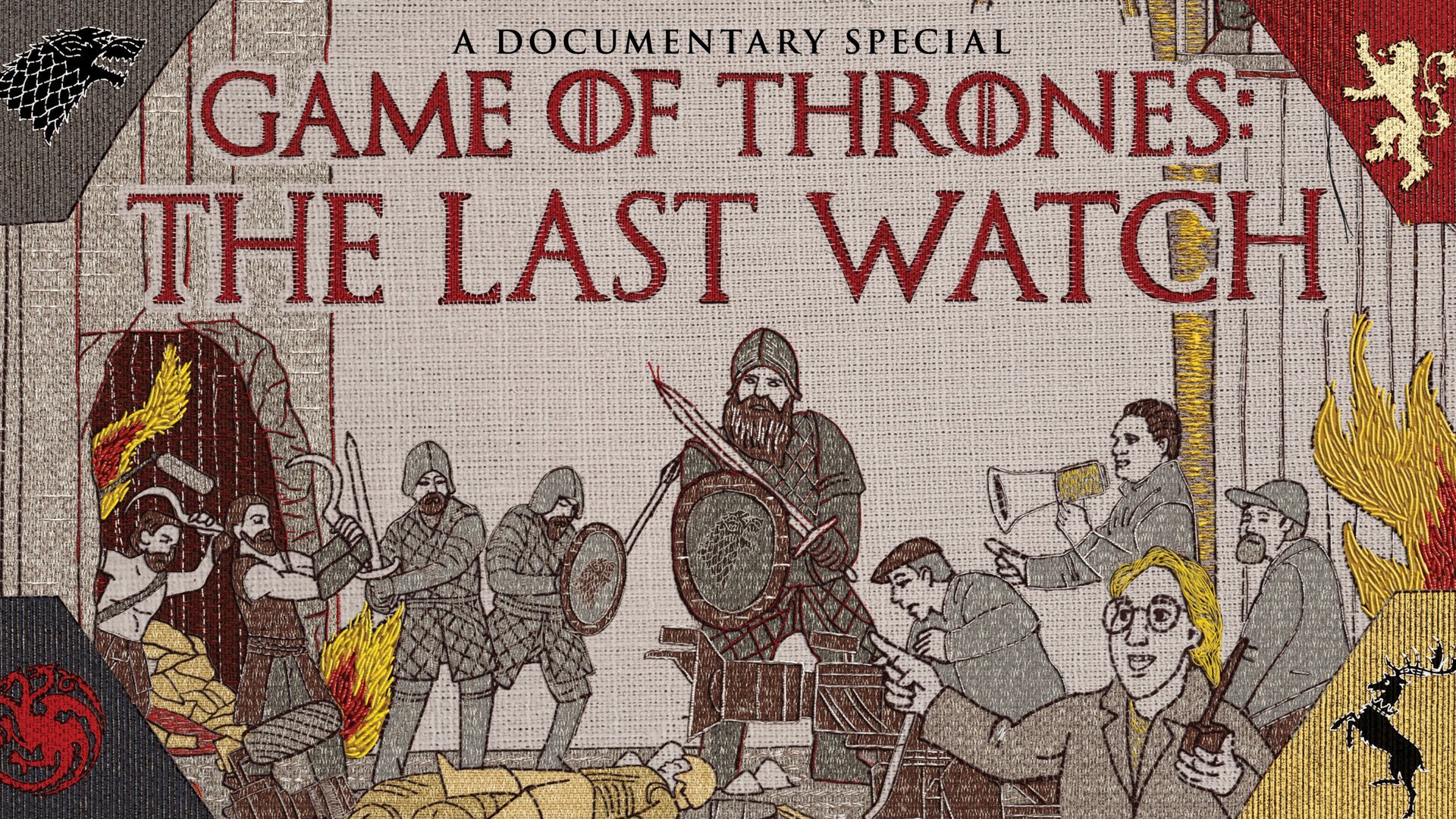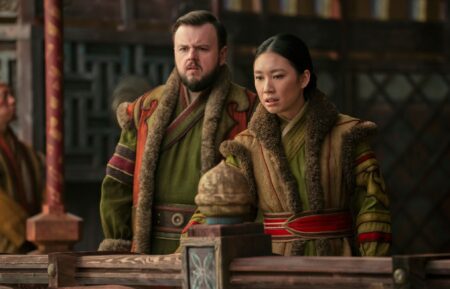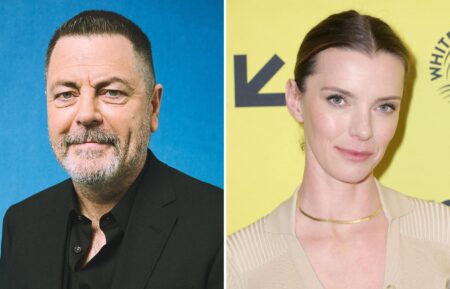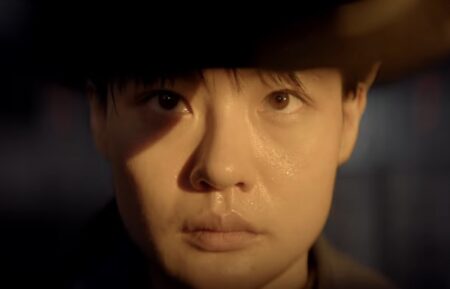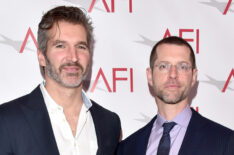D.B. Weiss jumped from a nascent career as a novelist to an abruptly celebrated television producer and writer, scoring a monster hit with his first venture into the medium as creator of the HBO series "Game of Thrones" (2011- ). Weiss studied at Trinity College in Dublin, Ireland, where he first met David Benioff; the two would stay in touch as sounding boards for each other's literary works. In 2003, Weiss published his first book, Lucky Wander Boy, an oddball post-mod rumination on video game culture as a filter of life, while Benioff, upon adapting his own first novel for the screen, went on to a successful screenwriting career.
In 2006, Benioff introduced Weiss to the vast sword-and-sorcery otherworld of George R.R. Martin's A Song of Ice and Fire novels. The creative duo and Martin would go on to sell the property to HBO as a TV series. Four years in the making, with four shoots going on in four different countries, the ambitious production premiered on HBO as "Game of Thrones" in spring 2011 and quickly became a cable TV phenomenon. Transitioning to TV production both of massive scale and nearly universally acclaimed genius, Weiss and Benioff seemingly overnight made themselves ballyhooed television hitmakers, the darlings of critics and fanatical genre programming audiences alike.
He was born Daniel Brett Weiss on April 23, 1971 in Chicago, IL, to Laurie and Michael Weiss and grew up in the suburb of Highland Park. Young Dan asked his mother to teach him to read when he was three years old and became an avid reader thereafter, spurring an imagination he would apply while writing his own stories as well as playing the role-playing game Dungeons & Dragons and the first-generation of video games. He attended Highland Park's Braiside School for his primary through junior high years, at one point distinguishing himself so much at an essay-writing competition that the judging panel needed to be convinced that his parents had not written his piece for him.
He attended Wesleyan University in Middletown, CT, before being accepted to the venerable Trinity College in Dublin, Ireland, where he did his thesis on James Joyce. At Trinity, he met another American expatriate and Irish lit student, as well as an aspiring writer and D&D gamer, David Benioff, and the two continued to be close friends upon their return to the U.S. Weiss performed a bevy of jobs after school, including some dabbling in show business with behind-the-scenes work for National Geographic Films and research for the New Line Cinema film "Viking Sagas" (1996). He returned to school when he was accepted to study at the Iowa Writer's Workshop, graduating with an MFA in fiction writing.
In 2003, Plume Original Fiction published his first novel, Lucky Wander Boy, the story of a low-level wastrel Hollywood denizen who, while engaging in an obsessive cataloguing of early video games, comes across a bygone Japanese game that has all but disappeared and becomes convinced it holds the key to turning his life around. The book drew mixed reviews, but some reveled in its exercise in post-modernist geek-culture. Salon.com's review observed, "A generation reared on video games will produce some zombies, sure, but it will also engender poets - bards of a new digital discipline. Weiss is just such a bard, making merry with the grist of 'Donkey Kong' and 'Frogger,' capturing the spirit of a generation raised on arcades and Atari cartridges." Despite such rave reviews, Weiss's early attempts at screenwriting did not pan out, even as Benioff's fortunes rose in Hollywood after the publication and screen adaptation of his own first novel, The 25th Hour.
In 2006, the friends began reading and exchanging notes on George R.R. Martin's series of fantasy novels under the rubric of A Song of Ice and Fire. Martin's agent had contacted Benioff with the books with the intention of pitching an adaptation as a television series to HBO. They made the sale to the cable channel with Benioff and Weiss as co-creators, executive producers, showrunners and writers of nearly every episode - though Martin was brought in to script a couple episodes himself.
The story chronicled the power struggle for the eponymous Iron Throne, the seat of power on the mythical continent of Westeros. Comprised of various fiefdoms and family dynasties, the players in the multi-sided gambit of violence and political intrigue were the usurping Baratheons, the wealthy Lannisters, the stolid island-dwelling Greyjoys, and the noble Starks, a clan from the rugged northern region of Westeros. With such scope and a cast of 160, mostly drawing on British and Irish stage actors and young up-and-comers, the production would be nearly unprecedented for a TV series, with the first season budget estimated at between $50 million and $60 million due to location shoots in Ireland, Iceland, Malta and Croatia.
The show debuted in spring 2011 to rave reviews, developing into a tsunami of pop cultural buzz and seeing ratings climbing throughout the season. The show earned 13 Emmy nominations in summer 2011, with Peter Dinklage, the lone American in a major role, taking the Emmy for Best Supporting Actor. Season two of the series in the spring of 2012 built on the first season's momentum, averaging 10.4 million viewers per episode with rebroadcasts, prompting HBO to contract Benioff and Weiss for a third without hesitation. The series' success outpaced even that of the original novels. In 2015 alone, the series scored a total of 24 Emmy nominations and won 12, including Outstanding Drama Series; it was a record for most Emmy Awards won in a single season.
By Matthew Grimm






